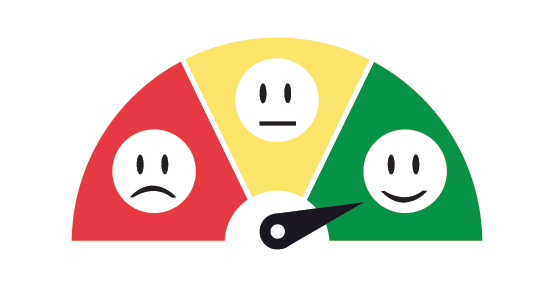Not breaking news: executives at companies large and small often claim one thing is a priority (words), then their actions make it clear that a totally different thing is the real priority. For example: “talent strategy” is a priority, folks! Um. No it’s not. We want to build up our recruiting pipeline using ‘The Rule of 3!’ Um. No you don’t.
People talk about one thing because it seems like a good thing to say and like-minded peers are saying it, but in reality the goal is typically “make more money” or “make more while spending less,” but those things don’t seem as good to say on a survey or in an article, so no one does. That means you get a one-way-facing bullshit in surveys and the media, and the real way a company runs is massively different. This probably frustrates intelligent people in middle management a lot.
Case in point is this new article over at Forrester’s, which uses this article from The Wall Street Journal to argue that 74 percent of executives claim “customer experience” is their top priority for 2015. That’s a high number — basically 8 in 10 executives saying it’s a top priority. But is it really?
Most people who know and study and observe where business is headed will tell you that if you want to really make a dent with potential consumers, your products need an easy-to-use, simple interface. That’s the base on which everything else is built. Honestly.
But much like how people often don’t understand the success of Apple and instead try to attribute to a million and one financial or geographic factors, I think “customer experience” for executives is one of those things you talk about because you hear peers talking about. You don’t actually completely know what it means, and you probably don’t care. Instead, you’re thinking you’ll compete on margin or price or shelf coverage or marketing/PR or whatever the case may be. You probably think “customer experience” is a soft, fluffy term. Most top executives I know are generally like this: they up-sell the idea of “make things easy for the customer!” but the bulk of their meetings aren’t spent anywhere near that space. Rather, they’re holed up with finance and marketing chasing those dragons.
The Forrester’s article makes the same points — and notably points out that a lot of people who work in customer experience these days came up with a particular set of skills (i.e. wire-framing, design, engineering) but some of those core skills may be evolving a little bit. How about data-driven design? How about empathetic design? How about customer life-cycle design? Again, those things sound like buzzwords to a lot of people and you can’t easily toss them in a spreadsheet and do a presentation about them, but … consumers have a million choices in almost every product line these days. If they interact with you via their phone or tablet or whatever, the experience they go through needs to be simple. They need to understand how to achieve their goal quickly, or they leave. And when they leave, they take their money and spend it somewhere else.
We all do this every day with a dozen products, but when we look at our own workplaces and sales processes and funnels, we seem to totally forget that.
All this said, I hope those 74 percent of executives were being honest, and I hope customer experience is indeed a priority for them. In reality, I bet they’re running to meetings tomorrow morning about Q1 financial targets and probably won’t even think of customer service for a few weeks, if that.
